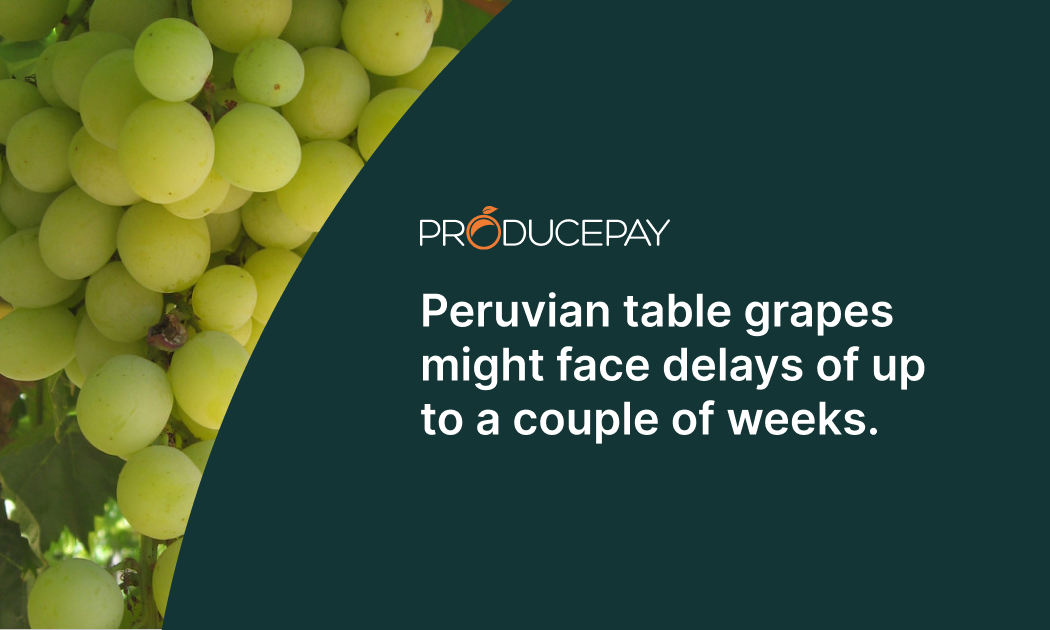
Peruvian table grapes might face delays of up to a couple of weeks.
The current volatile political situation in Peru is directly affecting the country’s agricultural sector. Although the full impact won’t be known with certainty for a few more months, the agribusiness export industry could be among the most affected, especially for products such as table grapes, mangos and avocados.
This socio-political unrest has mainly impacted the southern region of the country, comprising the provinces of Arequipa, Apurímac, Ayacucho, Cusco and Puno, which are primarily dedicated to agriculture. However, the impact is also affecting the central and northern regions.
The Superintendence of Land Transportation for People, Cargo and Merchandise (SUTRAN, by its Spanish acronym) announced that as of January 16, 2023, 99 traffic points in the country had been interrupted, which translates into 18 national roads affected in 10 different regions. As agro-exports require roads to get fresh produce to the air and seaports, economic losses could begin to increase rapidly.
The impact to the produce industry
ProducePay’s Field Operations team estimates that table grapes have been the produce most affected by these disruptions, since their transportation to export shipping points have suffered delays of up to two weeks. Along with table grapes, smaller volumes of mango and avocado have also been affected.
Peru’s agri-food export industry is an important economic driver for the country. This sector plays a vital role in creating income and employment in rural areas, so any significant drop in exports could have an impact on the national economy.
In addition, the current unrest is creating difficulties for local production and marketing, which is driving high volatility in the prices of basic products that will especially affect the rural population.
For example, in Arequipa, the Agricultural Society of Arequipa (SADA) estimates that 48,500 growers are being affected by the situation, with daily losses of 1,000 tons of produce due to the inability to bring them to market.
The forecast for Peruvian agro-exports was very promising in 2023, after closing strong in 2022 with a 10.4% increase for the January to October 2022 period over the previous year. But the current political chaos is likely to have a significant negative impact on this year’s agro-exports.
What can growers and buyers do?
For produce growers in Peru, the main priority should be to effectively send and sell their produce, as well as having enough capital and cash flow to continue with their operations. Through ProducePay’s Supply Chain Services, they can access verified logistics providers to help them meet their transportation and warehousing needs when sending it to the United States.
In addition, options like Quick-Pay will allow growers to get paid for their shipments in up to 24 hours, and in the case of buyers, allow them to reward their suppliers’ loyalty with greater access to cash flow without having to finance them directly.
